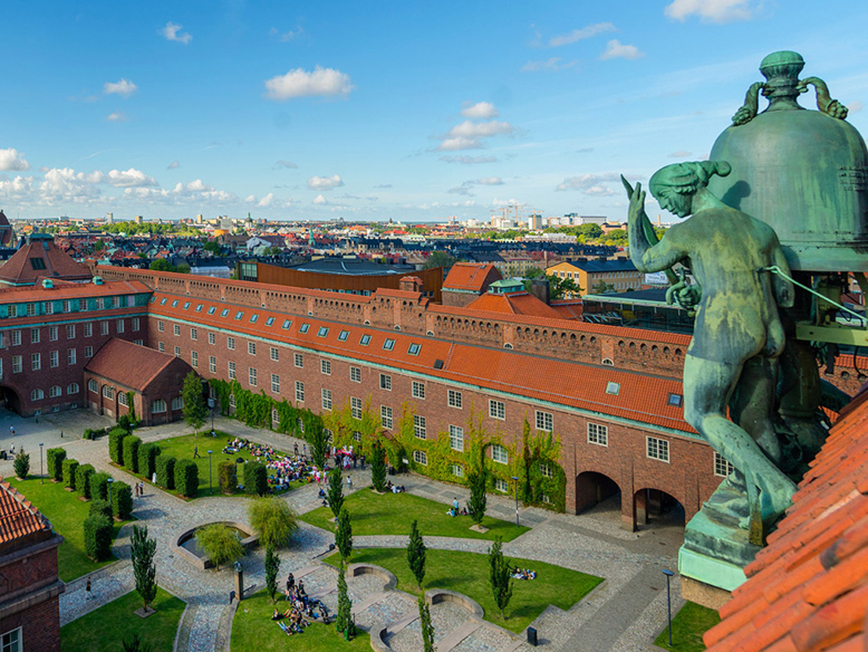KTH holds its position in world top 100

KTH Royal Institute of Technology retained its spot among the top 100 universities worldwide, in the 2020 QS World University Rankings.
Published on Wednesday, the QS rankings place KTH 98th for the second consecutive year.
“The important thing is to be among the 100 best universities in the world,” says KTH Deputy President Mikael Östling. “It’s very encouraging to see our high position among the world’s technical universities, and especially in Europe where we had the sixth highest position.
“It’s quite encouraging, though our aim is to always advance, even though that’s a bit optimistic given that the competition gets tougher each year,” he says.
Nevertheless, the university’s work toward increasing citations and the visibility of research could give KTH the lift it needs to advance higher in the next several years, Östling says.

KTH’s ranking is comprised of mixed scores across the range of areas where universities are evaluated by QS.
QS considered nearly 5,500 universities, and evaluated about one-fifth of them according to six metrics: academic reputation, employer reputation, faculty/student ratio, citations per faculty, international faculty ratio and international student ratio. Rankings are assigned for each. The most heavily weighted index is academic reputation, which comprises 40 percent of an institution’s overall score. KTH placed 168 in academic reputation (it was 166 last year).
And in other areas, KTH’s rankings improved, such as faculty/student ratio, and international faculty and student ratios.
“These changes are within the uncertainty limits,” Östling says. “We are basically on par with last year’s results, and that in itself is a good sign for KTH.
The volume of citations weighs in at 20 percent of an institution’s overall ranking. Östling says that in this area, where KTH’s ranks 91st (a decrease of nine places from the previous year), the results of a recent initiative to increase research visibility are not yet measurable.
“The discussions we have had during the previous year will give results, but it takes years before we can see numbers,” he says. “This is a long-term project. We have to be more strategic about where when and how we publish.”
KTH was the 16th highest ranked among technical universities in the list, and 6th among those in Europe. Among all universities in Europe, KTH was 33rd in the list.
These are KTH’s rankings in the six indicators that comprise the overall ranking, dating back to 2012:
Academic reputation from Global Survey, weighted 40 procent, (based on survey 102,500 answers): 168/2020, 166/2019, 170/2018, 162/2017, 177/2016, 167/2015, 171/2014, 166/3013, 180/2012
Faculty/student ratio, weighted 20 percent: 224/2020, 229/2019, 253/2018, 206/2017, 205/2016, 196/2015, 160/2014, 167/2013, 168/2012
Citations per faculty from Scopus, weighted 20 percent: 91/2020, 82/2019, 78/2018, 110/2017, 112/2016, 101/2015, 226/2014, 270/2013, 294/2012
Employer reputation from Global Survey, weighted 10 percent, (based on survey of 52,000): 111/2020, 102/2019, 101/2018, 74/2017, 67/2016, 81/2015, 73/2014, 92/2013, 150/2012
Proportion of international faculty, weighted 5 percent: 95/2020, 116/2019, 131/2018, 155/2017; 140/2016, 143/2015, 161/2014, 118/2013, 153/2012
Proportion of International Students, weighted 5 percent: 251/2020, 297/2019, 331/2018, 336/2017, 325/2016, 315/2015, 229/2014, 136/2013, 64/2012
David Callahan

